Listed below are selected resources for teachers, related to using Inquiry-Based Learning in the elementary grades (K-6).
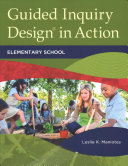 Guided inquiry design in action: Elementary school
Guided inquiry design in action: Elementary school
by Leslie K. Maniotes
Grades: K-6
Intended to be used alongside Guided Inquiry Design, lessons are laid out using the session plan templates from that book. Included in these lesson plans are lessons created by educators for increased student interaction that enhance the elementary educator’s ability to instruct younger students using the GID process.
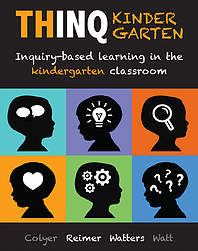 THINQ Kindergarten: Inquiry-based learning in the kindergarten classroom
THINQ Kindergarten: Inquiry-based learning in the kindergarten classroom
by Joan Reimer and Debbie Watters
Grades: Kindergarten
THINQ Kindergarten examines the role of educators and learners in an inquiry-based kindergarten environment.
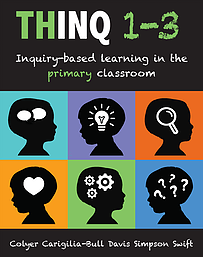 THINQ 1-3: Inquiry-based learning in the primary classroom
THINQ 1-3: Inquiry-based learning in the primary classroom
by Jill Colyer et al.
Grades: 1-3
THINQ 1-3 examines the role of educators and learners in an inquiry-based primary classroom.
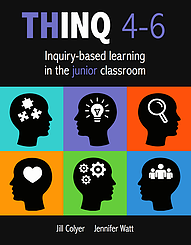 THINQ 4-6: Inquiry-based learning in the junior classroom
THINQ 4-6: Inquiry-based learning in the junior classroom
by Jill Colyer and Jennifer Watt
Grades: 4-6
THINQ 4-6 applies the ideas of inquiry-based learning to the specific needs and characteristics of junior learners, teachers and classrooms.
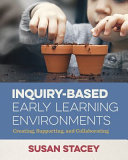 Inquiry-based early learning environments: Creating, supporting and collaborating
Inquiry-based early learning environments: Creating, supporting and collaborating
by Susan Stacey
Grades: K-3
This book examines inquiry in all its facets, including environments that support relationships, create a culture of risk-taking in our thinking, support teachers as well as children, include families, and use documentation as a way of thinking about the work of inquiry-based learning.
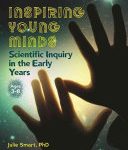 Inspiring young minds: Scientific inquiry in the early years
Inspiring young minds: Scientific inquiry in the early years
by Julie Smart
Grades: K-3
This book provides a concrete guide to using research-based principles of inquiry to help children explore their world, using case studies to focus on the teacher’s interaction with children.
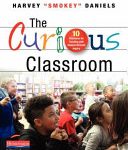 The curious classroom: 10 structures for teaching with student-directed inquiry
The curious classroom: 10 structures for teaching with student-directed inquiry
by Harvey “Smokey” Daniels, with Sketchnotes by Tanny McGregor
Grades: K-6
This book provides research-based suggestions that help cover the curriculum by connecting what kids wonder about to what teachers have to teach them. It shares 10 structures, 34 models from teachers, examples of students work, and specific suggestions for assessment and grading.
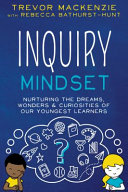 Inquiry mindset: Nurturing the dreams, wonders, & curiosities of our youngest learners
Inquiry mindset: Nurturing the dreams, wonders, & curiosities of our youngest learners
by Trevor MacKenzie with Rebecca Bathurst-Hunt
Grades: K-3
This book provides teachers with suggestions on how to harness the wonderings and curiosities of students and leverage them into learning opportunities, and how to cultivate an inquiry mindset in both themselves and their students.
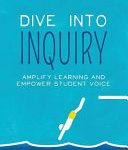 Dive into inquiry: Amplify learning and empower student voice
Dive into inquiry: Amplify learning and empower student voice
by Trevor MacKenzie
Grades: K-6
This book gives readers a strong understanding of the types of student inquiry and proposes a framework that best prepares both educators and learners for sharing the unpacking of curriculum in the classroom, as they work together towards co-constructing a strong free inquiry unit.
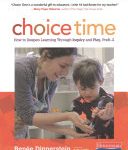 Choice time: how to deepen learning through inquiry and play, preK-2
Choice time: how to deepen learning through inquiry and play, preK-2
by Renée Dinnerstein
Grades: K-2
This book describes how to create choice-time centers that promote inquiry-based, guided play in the classroom, including blueprints for six proven choice-time centers, with variations; a guide to arranging classroom space to maximize play’s value and support the child’s growing independence; scheduling suggestions for different grade levels; and ideas to connect centers to the curriculum, giving children greater agency in designing and planning centers.
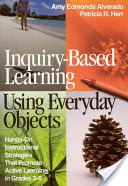 Inquiry-based learning using everyday objects: Hands-on instructional strategies that promote active learning in grades 3-8
Inquiry-based learning using everyday objects: Hands-on instructional strategies that promote active learning in grades 3-8
by Amy Edmonds Alvarado and Patricia R. Herr
Grades: 3-8
This book explores the concept of using everyday objects as a process initiated both by students and teachers, encouraging growth in student observation, inquisitiveness, and reflection in learning.
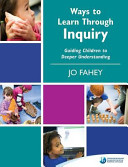 Ways to learn through inquiry: Guiding children to deeper understanding
Ways to learn through inquiry: Guiding children to deeper understanding
by Jo Fahey
Grades: K-6
This work demonstrates how inquiry can look and sound in the early years of the International Baccalaureate Primary Years Programme (PYP), helping teachers recognize, guide, and deepen their students’ wonderings in valuable ways.
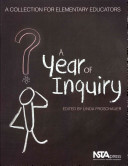 A year of inquiry: A collection for elementary educators
A year of inquiry: A collection for elementary educators
edited by Linda Froschauer
Grades: K-5
The 36 articles in this collection provide guidance on ways to move students towards doing science and away from lectures, memorization, and cookbook labs.
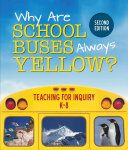 Why are school buses always yellow? Teaching for inquiry, K-8
Why are school buses always yellow? Teaching for inquiry, K-8
by John F. Barell
Grades: K-8
The author shares simple yet systematic ways to develop authentic student inquiry that fosters deep learning. This new edition features updates based on the latest research around inquiry-based teaching; examples for grades K–8 across subject areas; and an emphasis on critical thinking about technologies.
Finding More Resources
To find more resources in this area, try the following:
- Search using the General tab on the UBC Library website to look for material in all UBC Library branches.
- Search using “Search Education Resources” box in the left hand bar on the Education Library website to limit your results to physical materials in the Education Library.
- Use specific search terms, such as “inquiry-based learning” or “inquiry”.
- To find lesson plans, include “lesson plans”, “lesson planning”, or “activity programs” in your search terms.
For more help with searching, please visit the Library Service Desk or e-mail ed.lib@ubc.ca.